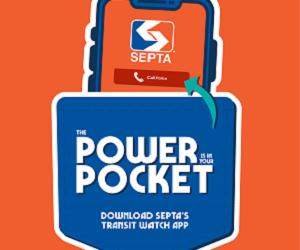
Equity in Infrastructure Project Launches
April 26, 2022

The Equity in Infrastructure Project (EIP) launched today (April 26, 2022) to improve public contracting practices by creating more opportunities for Historically Underutilized Businesses (HUBs) to build generational wealth and reduce the racial wealth gap by creating more prime, joint venture and equity contracting opportunities for these firms.
Through its Pledge, EIP works to secure commitments from public agencies to increase the number, size and scope of contracts going to HUBs by facilitating access and reducing barriers to compete for business. EIP defines HUBs as including firms formally designated as DBEs, Minority and Women-Owned Business Enterprises (M/WBE), Small Business Enterprises (SBE), as well as any other business classification used locally in the United States intended to boost the participation of otherwise underutilized firms, which can vary by state, region, and municipality.
EIP was founded by Denver International Airport CEO Phillip A. Washington, former US Deputy Secretary of Transportation John D. Porcari and others in anticipation of the $1.2 trillion Infrastructure Investment and Jobs Act and to answer President Biden’s call to leverage infrastructure spending to build wealth in underserved communities.
EIP receives generous support from Social and Environmental Entrepreneurs, Social Impact Fund, HNTB and The James Irvine Foundation.
EIP launches with the following First Mover signers of its Pledge:
-
Chicago Transit Authority – Dorval R. Carter, Jr., President
-
Denver International Airport – Phillip A. Washington, CEO
-
Port of Long Beach – Mario Cordero, Executive Director
-
Metropolitan Water District of Southern California – Adel H. Hagekhalil, General Manager
-
Southeastern Pennsylvania Transportation Authority (SEPTA) – Leslie S. Richards, General Manager/CEO
The Pledge was finalized after the above five leaders gathered in Washington, D.C. in December 2021 alongside senior leaders from the public, private, and philanthropic sectors, including representatives from USDOT, the Environmental Protection Agency, HNTB, AECOM, The James Irvine Foundation, members of Congress and others to lay the groundwork for this initiative. While EIP is acting independently, this effort seeks to advance the spirit of President Biden’s Justice 40 Initiative and his June 2021 executive order pledging to increase by 2026 the share of federal contracts that go to small and disadvantaged businesses, which new Small Business Administration (SBA) data shows is unacceptably low.
Starting from the baseline of their current actions and initiatives, by December 2025, Pledge signers will work to increase the number, size and percentage of HUBs growing to prime contractors, participating in joint ventures or as equity participants. They will work toward this effort by:
-
Increasing the number, size and proportion of contracting opportunities going to HUBs;
-
Increasing the number, size and proportion of contracting opportunities going to HUBs as prime contractors;
-
Streamlining the administration of contracting with HUBs to centralize certification, improve payment time, and standardize transparent data collection;
-
Increasing the amount and type of appropriate financing available to HUBs aiming to meet infrastructure contracts by working with private and public partners; and
-
Expanding the number of signatories to this Pledge.
“Who we contract with has always mattered in our efforts to advance equity. At this moment, we have a once-in-a-lifetime opportunity to create generational wealth for small, minority and women-owned firms in the infrastructure space,” said SEPTA General Manager/CEO Leslie S. Richards. “SEPTA is not only committed, we’re excited to take this Pledge.”
The Equity in Infrastructure Project (EIP) seeks to improve public contracting practices by creating more opportunities for Historically Underutilized Businesses (HUBs) to build generational wealth and reduce the racial wealth gap by creating more prime, joint venture and equity contracting opportunities for these firms. EIP defines HUBs as including firms formally designated as DBEs, Minority and Women-Owned Business Enterprises (M/WBE), Small Business Enterprises (SBE), as well as any other business classification used locally in the United States intended to boost the participation of otherwise underutilized firms, which can vary by state, region, and municipality.
Learn more about the EIP Pledge at EquityInInfrastructure.org.



